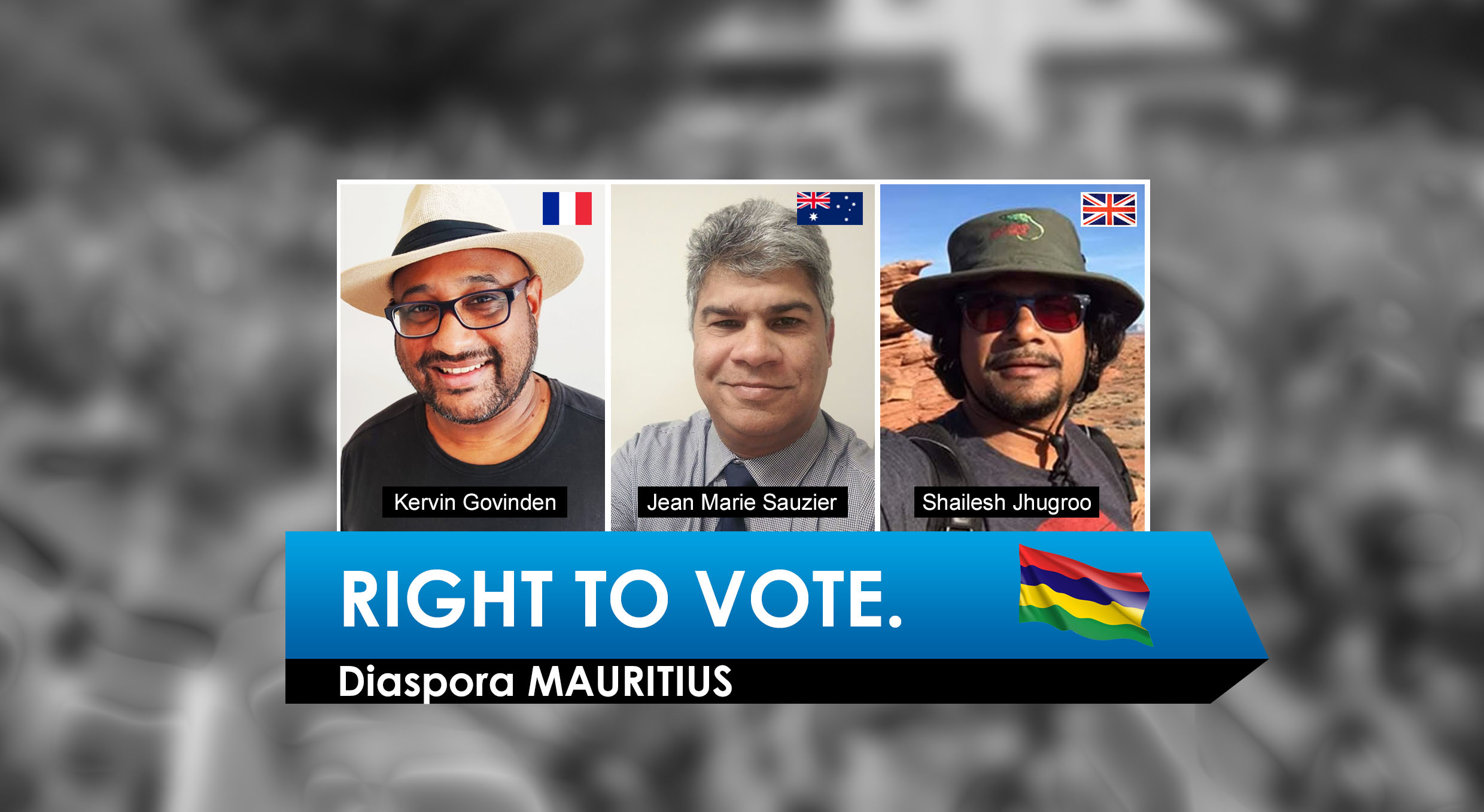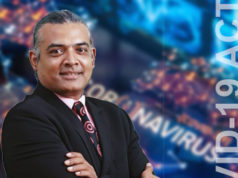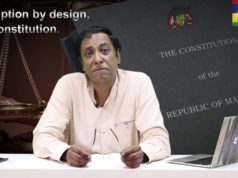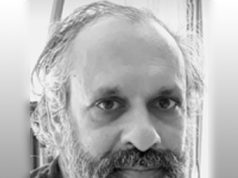1. Il faudrait un changement de constitution notamment pour que la diaspora mauricienne puisse voter. Il faut entendre selon moi par “diaspora” tous les citoyens mauriciens vivant à l’étranger. Mais ce changement de constitution ne concerne pas que cette question certes cruciale. Il y a bien d’autres raisons qui expliquent cette nécessité. Ceux qui “dirigent” ne doivent pas être ceux qui fixent les règles du jeu. Et c’est pourtant le cas actuellement. La constitution doit être un garde-fou. C’est ce texte qui protège les peuples des velléités dictatoriales du tyran qui se cache peu ou prou derrière tout dirigeant. C’est la nature humaine qui veut ça. Dès lors qu’il a un peu de pouvoir, l’être humain ne peut s’empêcher de vouloir tout contrôler. Et c’est de cela qu’il faut se prémunir. Voilà à mon sens à quoi sert une constitution.
2. Il faudrait donc qu’il y ait le moins de représentativité possible.
3. Il faudrait qu’il y ait une démocratie participative la plus directe possible.
4. Il faudrait donc que le peuple lui-même vote les lois, et qu’il soit consulté par voie référendaire (référendums d’initiative populaire ou citoyenne RIP ou RIC). Les questions posées doivent être rédigées par le peuple lui-même.
5. Il faudrait une dose minime de représentation notamment en faisant appel à une assemblée parlementaire qui siégerait essentiellement sur des points techniques.
6. Cette assemblée devrait être constituée par des membres tirés au sort parmi des volontaires qui seront payés comme le sont les membres des jurys d’assises. Avec évidemment des organes de contrôle
7. Ceci permettrait qu’il n’y ait plus de professionnels de la politique. En outre, il ne faudrait plus de financement de parti politique afin d’éviter les lobbys et donc les réseaux d’influence. Dans le système actuel et ce, dans un grand nombre d’endroits dans le monde, il y a d’ailleurs corrélation parfaite entre le temps de passage dans les médias et les résultats électoraux. Autrement dit, plus on passe dans les médias et plus on a de chance d’être élu. La plupart des médias étant aux mains des oligarques, le fait qu’ils vous mettent en avant induit forcément au moment de l’élection de ce candidat une contrepartie, en réalité un renvoi d’ascenseur qui s’apparente donc pour les groupes médiatiques à un financement indirect et une forme de collusion avec les politiques. Et vice versa…
8. Il faudrait surtout arrêter de penser que le peuple mauricien n’est pas prêt pour ce type de processus démocratique. Il n’est pas plus bête que les autres. Ni spécialement plus intelligent du reste… Il doit comme beaucoup d’autres peuples être sensibilisé à ces problématiques à travers la création d’ateliers constituants (c’est à dire des ateliers où l’on apprend à écrire à la constitution et où après très peu de temps, on la rédige avec l’ensemble des participants) dans tous les cercles de rencontre possibles. Il faudrait que l’EDUCATION POPULAIRE soit menée à tous les niveaux possibles (clubs, émission télé/radio, conférences, séminaires, tuto sur tous les réseaux sociaux imaginables : YouTube, Instagram, Facebook, faire des films promotionnels, des flyers, des livres, des articles etc.).
Le droit de vote de la diaspora n’est qu’une composante de cette dynamique globale qui concerne le peuple mauricien dans son ensemble. En dehors du fait qu’il y ait bien entendu des règles à respecter en ce qui concerne les droits civiques qui seront à définir avec le changement de constitution, il n’y a pas de citoyens de seconde zone. Soit on est citoyen, soit-on ne l’est pas.
Voilà ma contribution. Si ça peut servir tant mieux…
Kervin Govinden
Réunion
One only has to pay attention to the people walking out of the arrival hall of Plaisance airport during the holiday seasons to see the high percentage of passengers of Mauritian origin bearing wide smiles on their faces. They are back on their motherland on holidays. It is fair to say that an awful lot of Mauritians residing overseas consider Mauritius as their number one tourism destination. Their bond with the country is still strong despite the fact that their country of residence is far away from that island where they were born.
These people never cease to contribute to the economic wealth of the island. Many of them invest in Mauritius, other support families who are still living there, they recommend Mauritius as a tourism destination to families and friends in their country of adoption. In fact, they are the best ambassadors in terms of promoting Mauritius to foreigners. It is a known fact that the diaspora contributes 2% of the country’s PIB.
When they are in their adopted country, they are the first one to help the Mauritians stranded there. This was particularly pertinent during the Covid 19 pandemic- many seafarers and other families stranded in various parts of the world were grateful for their Mauritian contacts. Ask any Mauritian who lands in a foreign country where they get the most valuable assistance, and most will respond: the diaspora. The renowned hospitality nature of the Mauritian is again showcased by these acts of assistance. And following the Covid 19 pandemic the grounding of the MV Wakashio, the Mauritian Diaspora has shown time and time again that they can be counted on when help is needed.
We must not ignore the brain tank that the diaspora has and can provide to Mauritius when needed. Mauritius regularly sends its citizens to conferences, seminars and other meetings to rub shoulders with other nations and gain valuable experience and knowledge. Imagine the pool of experience and expertise that is available if the country decided to tap on the diaspora’s thinking tank. Priceless.
For the reasons above, it would be highly beneficial to the country to recognize them as electors, provide them with the ability to have a say in shaping the social and economic fabric of the island. As opposed to the foreign workers whose contribution to the economy of the country is negligible as they send most of their earnings back to their homeland.
Jean Marie Sauzier
Tasmanie
The right to vote for the Mauritian people, wherever, they are in the world, is a birthright! Denying one’s right to be an equal citizen of Mauritius is a form of oppression. This is the sentiment shared today by Mauritians living all over the world who have no way of voting in Mauritian elections – one never ceased to be Mauritian even after spending years abroad.
This state of affairs is not to be blamed on any ruling political party – granted none of them did anything about it – but on our young democracy which is only fifty-two years old and is still burgeoning. It would not take much other than will power from the sitting government to lay out a mechanism for the Mauritian Diaspora to vote remotely.
This issue is even more pertinent for Mauritius, as by some estimate there is 15-20% of Mauritians living abroad that contribute to 2% to the GDP of the country either in the form of remittance or direct investment. The government is always keen to tap on the brain and economic power of Mauritians living abroad. We even have a tax-benefit scheme to lure the diaspora back to the motherland. This is far from sufficient, as the right approach here is to treat all Mauritians equally, and that starts with the right to vote for everyone.
With today’s means of communication and technology, the world is a global village, and the Diaspora – which is a movement of people in and out of their motherland – has gained tremendous importance especially during critical times. The latest examples are the Armenian Diaspora involvement in the Nagorno-Karabakh conflict with Azerbaijan, the Kosovo Diaspora involvement in rebuilding Kosovo, the Lebanese Diaspora massive effort to rebuild Beirut, and let’s not forget the Mauritian Diaspora outpouring support for their people following the Wakashio oil spill. Even the United Nations Office of Migration is looking at the Diaspora movement and its contribution to a better world.
So, what should the Mauritian government do?
It starts by legitimizing the movement (as opposed to denigrating it). We, the Mauritian Diaspora, invite the government to work with us. Let’s explore the concept of an Ambassador-at-large to look into non-resident Mauritian affairs and to foster a better rapprochement with the people of Mauritius.
Shailesh Jhugroo
Washington DC











